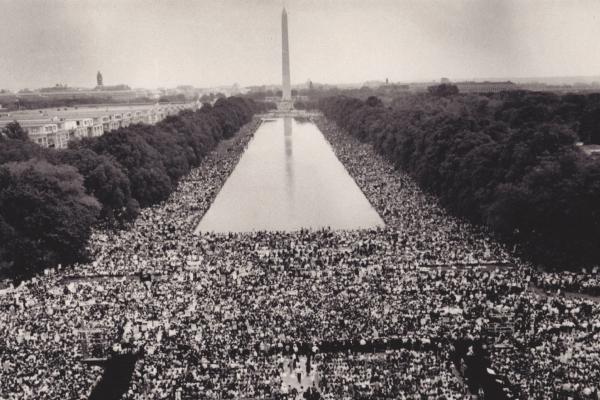The Bahá'í writings say that human beings are like mines rich in gems of inestimable value and that one of the purposes of this earthly life is to discover our God-given gems, polish them, and bring them out to serve humanity.
Today I write about a wonderful woman who has offered her many incredible gems in service.
I first met Harriet Stafford in Gainesville, Fla. My favorite memories involve talking with her while she kindly gave me a ride in her blue Dodge Caravan. Harriet often took people to events, celebrations, service projects, or committee meetings. She always brought with her something the group would need, material or spiritual — a plate of freshly baked cookies, a delectable covered dish, carefully selected holy writings to guide consultations, insights to elevate conversations, experiences to assist problem-solving, poems to inspire, or a humorous story to make one laugh. She left every gathering a better place than she found it.
Like its sister world religions, the Bahá'í faith has a prophet founder (Bahá'u'lláh), sacred writings (Bahá'u'lláh revealed through his own pen more than 100 volumes), a calendar (solar calendar starting on the day of the vernal equinox), holy places (mainly in the Haifa-Akka area in Israel), and a worldwide community (second most widespread religion after Christianity). Where it differs is that it has no clergy. Elected councils at the local, national, and international levels administer its affairs. We independently study and seek inspiration from our Holy Scriptures. Therefore, Bahá'í’s don’t have the usual minister or pastor to turn to for guidance.
We also often turn to role models of our choice — fellow travelers who may have walked the path before us and could offer their accompaniment to us in our own journey. Very often these are women like Harriet. They accompany countless people who want to walk the spiritual path with practical feet.
Women have played a significant role in the Bahá'í faith – spreading its healing message around the world and offering its teachings to address exigencies of our age, often evincing a greater boldness than their male counterparts. An earlier piece in this series has explored the lives of some of these women.
Harriet was born in Greensboro, N.C., “a state with a top hat and worn out shoes,” she says. Her town hosted six colleges and universities, two of which were historically African-American institutions. Harriet was born during the time when Jim Crow laws and segregation mores clearly defined rights and privileges.
Harriet remembers walking past “colored entrances” to movie theaters and designated water fountains and restrooms. Her parents were service-oriented, insatiable learners, hospitable, and avidly followed and analyzed current events worldwide. She remembers growing up amidst volumes of books on various subjects, great art, inspirational poetry, and amazing music. Her parents ensured she had a solid education and prepared her to face a world where many were bent on treating her unequally.
Education was a tool to deal with this oppression. But even if she had education, she knew that she would be made to feel unequal. Her sense of dignity would come from within, from deep within her soul and its Creator.
I always admired her deep connection to God and once asked Harriet when this relationship began. In response, she shared how her father brought her to the 1963 March on Washington when she was 11 years old. He took her on a tour of the historical sites of the capital to reinforce the notion that this was her country and that she was entitled — all black people were entitled — to rights and privileges of citizenship, true franchise, true representation.
“From the top of Washington Monument I saw a tapestry of humanity united for jobs and civil rights,” Harriet recalled.
“I had never been with a crowd this size or imagined that so many people would publicly proclaim that segregation and racism were unnecessary evils. Truly being with thousands upon thousands was inspiring and liberating. I felt like a bird that had winged its flight from it proverbial cage. I fell in love with God at that time.”
These strong childhood experiences shaped Harriet. She has lived a life of service to her family, friends, and community. And she continues to ponder what more she can do, asking herself, “What is needed in our community, not just our religious community, but the entire community? How can it impact in a way that moves us forward in a direction that leads us to unity in diversity and understanding that there is a new definition for what it means to be a successful person? Often consumerist values and spiritual values are diametrically opposite.”
One of my favorite verses from the Bahá'í writings states, “The betterment of the world can be accomplished through pure and goodly deeds and through commendable and seemly conduct.”
It is at once empowering and challenging. It begs the question of what this verse would look like in practice.
Luckily for me and the many others who know Harriet, we have a friend, mentor, older sister, and role model in her. I never met someone like her before, nor have I since. She is truly a unique gem.
Got something to say about what you're reading? We value your feedback!

